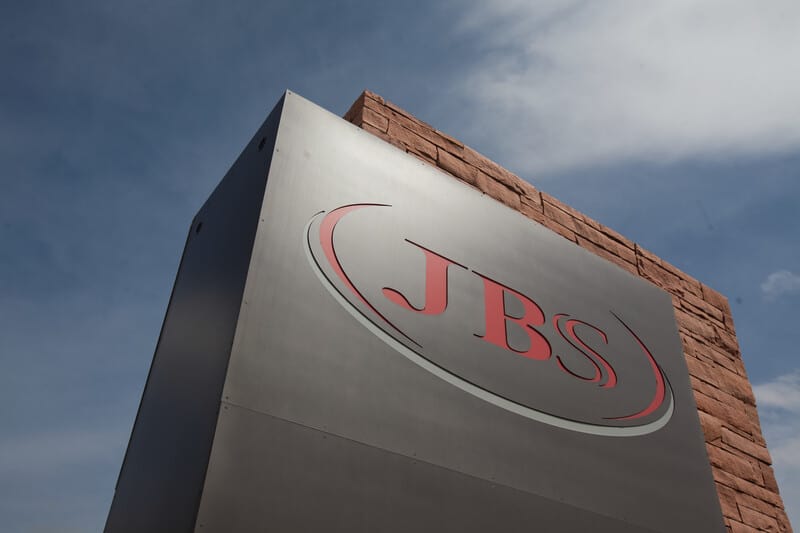Markets
From Beef to Beans: When Big Meat Enters Plant-Based in the Americas, Part One
The entrance of Big Meat into the plant-based category was nothing short of inevitable when the food industry began to realize both the huge potential…

The entrance of Big Meat into the plant-based category was nothing short of inevitable when the food industry began to realize both the huge potential of alternative foods as well as the future limitations on the planet’s capacity to “grow” animals for human consumption.
Back in 2019, the New York Times highlighted the fact that Big Meat (with this particular article focusing on Tyson, Smithfield, Perdue, and Hormel) was beginning to gain a foothold in the plant-based category. And last year, Yahoo Finance declared: “The meat industry is going through major upheavals. For example, a dramatic rise in the number of consumers preferring vegetarian food has forced companies to develop plant-based meat products.”
Whether the animal meat industry indeed had its hand “forced” by the arrival of the new wave of vegan products or whether it rather presented a valuable opportunity, is debatable. In this series, we will take a look at meat companies (entailing meat processors and end-producers) around the world that entered the plant-based category, some that tried and failed, with the products no longer listed, and others that succeeded and are still on sale today.
We will begin with America (North & South), in no particular order:

JBS, Brazil
JBS is one of the world’s largest beef processors. The company is based in Brazil and has operations across Europe, Canada, the United States, Australia, the UK, and more. JBS produces factory-processed chicken, beef, lamb, and seafood. JBS has attempted multiple forays into the plant-based industry, the first of which was its US plant-based meat division, Planterra Foods, which was established in 2019. Planterra launched the plant-based protein brand OZO Foods in 2020, and then in 2022, the entire division was discontinued as JBS claimed to want to focus its efforts on plant-based operations in Brazil and Europe.
In 2021, JBS established plant-based meat brand Incrivel Seara in Brazil, which the company claims is currently number 1 in the segment in the Brazilian market. In the same year, JBS also acquired Vivera, the third-largest plant-based food producer in Europe, as part of a joint deal with BRF. Both ventures are still operating successfully.
Additionally, JBS has entered the cultivated meat space, commencing construction of its first commercial-scale cultivated meat plant in Spain earlier this year through its subsidiary, BioTech Foods.

BRF, Brazil
With a profile of over 800 products, BRF is one of the largest producers of animal protein and a leading global exporter of poultry. The company is headquartered in Brazil and has over 50 production factories in eight different countries, including UAE, Thailand, Turkey, the UK, and Argentina.
In 2021, BRF partnered with JBS to purchase European plant-based food producer Vivera and also invested $2.5 million into Israeli cultivated meat company Aleph Farms to co-produce cultivated steak. One of BRF’s most popular subsidiaries is Sadia, which features a plant-based line called Veg & Tal. This line features 14 meat-free products, including Veg&Tal Nuggets, Veg Chicken in Cubes, Veg Shredded Chicken and Veg Chicken Strips.

Marfrig, Brazil
Marfrig is the second-largest Brazilian food processing company after JBS, with 33 production units across South and North America, exporting to over 100 countries. The company primarily focuses on beef production and meat packing but also produces, processes, distributes, and sells lamb, fish, and vegetable proteins and is engaged in leather industrialization and energy trading.
In 2020, the company partnered with Archer Daniels Midland Co (ADM) to create PlantPlus Foods in the Brazilian market and launched its first product for foodservice, a plant-based burger under the brand name The Revolution. The burger was quickly picked up by local Brazilian Burger King and Outback Steakhouse chains, although both were discontinued.

Earlier in 2023, John Pinto, CEO of PlantPlus Foods, said that he expects global plant-based food sales to surge to $30 billion in the next decade, and that the company is banking on food inflation easing and improvement solutions as key drivers for the sector’s growth.
At the end of 2021, PlantPlus purchased Eat Drink Well LLC, the parent company of US plant-based brand Hilary’s, and a few months later officially expanded into the US. Following the expansion, PlantPlus Foods acquired Canadian plant-based food producer Sol Cuisine, furthering its North American presence.
Cargill, USA
Cargill is an American-based agribusiness giant providing products and services in the food, agricultural, financial, and industrial fields. It’s the second-largest privately held business in the US, and the company produces, distributes, and markets beef, turkey, chicken, and egg products throughout North America and exports meat and by-products globally.

Cargill entered into the plant-based protein market in 2018, signing a joint venture agreement with PURIS, the largest North American producer of pea protein, later going on to acquire soybean processor Owensboro Grain Company.
Meanwhile, Cargill has made investments in cultivated meat companies Aleph Farms and Memphis Meats. In 2020, the company launched its own range of private-label plant-based patties and ground products, along with a line of plant-based chicken and seafood alternatives for the Chinese market called Plant Ever.
At the end of 2020, Cargill introduced its first range of branded plant-based offerings in the US under the Crave House brand, including burgers, sausages, meatballs, and ground. While the products are still available at select retailers around the US, there appears to have been no recent listings or developments, although the company says it’s working to develop improved products while continuing to make investments across all alt-protein sectors.

Recent investments from Cargill in the space include vegan fat and blood platforms from Bflike and plant-based fat alternatives from Cubiq Foods, which Elizabeth Gutschenritter, Cargill’s alt-protein chief stay, says is part of the company’s strategy. In a recent interview with Food Dive, Gutschenritter said, “We must unlock growth opportunities across all protein types so we can provide for a better future where protein is accessible for all. This idea is certainly central to Cargill.”
She adds, “Alternative protein is still a young and fast-changing category, and its evolution and volatility have been a big change. In a few short years, we’ve seen rapid improvement in technology and noticeable changes in consumer choices, too. All of this indicates that we’re still in the very early years of this developing category.”
Smithfield Foods, USA
Smithfield Foods is the number one pork supplier in the United States to retail, foodservice, and export markets, employing nearly 60,000 people in seven countries. It operates as an independent subsidiary of the Chinese-owned conglomerate WH Group. In 2019, the company launched its Pure Farmland brand of soy-based meat alternatives that included breakfast patties, meatballs, burger patties, and pre-seasoned crumbles.

The following year, it started shipping non-GMO versions of its plant-based products with higher protein content and lower saturated fat to match the healthier options offered by its competitors, along with the launch of plant-based breakfast and dinner sausages, but Pure Farmland has been quiet ever since.
The product range was never expanded, and as of the end of 2021, the brand exited quietly from the market, no longer being listed or sold. On investigation, the last press release from Pure Farmland was dated 2021.
The Americas, part two, is coming tomorrow, to be followed by Europe.

Wittiest stocks:: Avalo Therapeutics Inc (NASDAQ:AVTX 0.00%), Nokia Corp ADR (NYSE:NOK 0.90%)
There are two main reasons why moving averages are useful in forex trading: moving averages help traders define trend recognize changes in trend. Now well…
Spellbinding stocks: LumiraDx Limited (NASDAQ:LMDX 4.62%), Transocean Ltd (NYSE:RIG -2.67%)
There are two main reasons why moving averages are useful in forex trading: moving averages help traders define trend recognize changes in trend. Now well…
Seducing stocks: Canoo Inc (NASDAQ:GOEV 5.43%), Ginkgo Bioworks Holdings Inc (NYSE:DNA -1.12%)
There are two main reasons why moving averages are useful in forex trading: moving averages help traders define trend recognize changes in trend. Now well…














